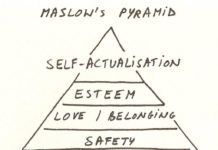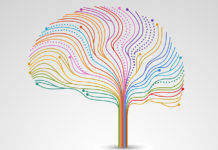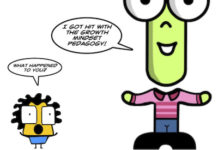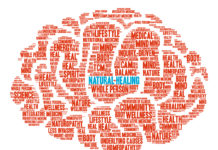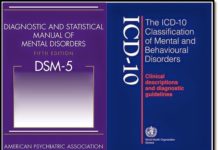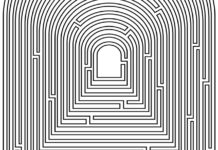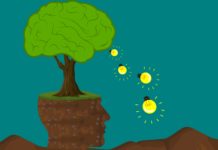Psychologist Debunks Common Misconceptions of Maslow’s Hierarchy
Utilizing Maslow’s published books and essays, psychologist William Compton delineates common myths and attempts to respond to them.
New Data on the Adverse Effects of Meditation and Mindfulness
Study reports on the less-examined findings of difficult and painful meditation-related experiences.
8 Years of Mental Health Research Distilled to 4 Infographics
Pictures are worth a thousand words. So I’ve chosen pictures to distill the mountain of mental health research I’ve examined over the last eight years. Three infographics summarize research on psychiatric drugs, and one asserts why I think Integrative Mental Health is the best path available for mental health recovery.
Are Students Benefiting From the Growth Mindset Model?
Results from two meta-analyses reveal shortcomings with the growth mindset theory as applied in schools.
United Nations Statement Criticizes Medicalization of Depression on World Health Day
"There is a need of a shift in investments in mental health, from focusing on 'chemical imbalances' to focusing on 'power imbalances' and inequalities"
Reimagining Healthcare
The conventional Western classification systems of health conditions are based on flawed science shaped by reductionist, hierarchical, and profit-driven ideologies. THEN wants to create a new paradigm built upon principles drawn from systems science, the life course perspective, developmental neurobiology, and other evidence-informed studies.
Study Finds Hearing Voices Groups Improve Social and Emotional Wellbeing
Hearing Voices Network self-help groups are an important resource for coping with voice hearing, study finds.
Antidepressants Not Superior to Psychotherapy for Severe Depression
On Wednesday, JAMA Psychiatry released a meta-analysis comparing the results of cognitive-behavioral therapy and antidepressant medication in severely depressed populations. Currently, many practice guidelines suggest that antidepressants be used over psychotherapy for major depressive disorder. The analysis, however, found that “patients with more severe depression were no more likely to require medications to improve than patients with less severe depression.”
Transcranial Magnetic Stimulation No Better Than Placebo for Treatment-Resistant Depression
A new study in JAMA Psychiatry found that transcranial magnetic stimulation was no better than placebo for treatment-resistant depression.
Constructing Alternatives to the DSM: An Interview with Dr. Jonathan Raskin
Dr. Raskin discusses psychotherapists’ dissatisfaction with current psychiatric diagnostic systems and explores alternatives.
Study Investigates Long-Term Effects of Social and Emotional Learning Programs
Social and Emotional Learning (SEL) programs have gained popularity in U.S. schools in recent years. A new study examines the nature and longevity of their impact on students.
Researchers Identify 27 Categories of Emotion
A new study finds that emotions may be represented by 27 categories, with each category relating to others in a more complex and continuous fashion than previously understood.
Experiences of Depression Connected to Declining Sense of Purpose
In-depth interviews find that those who screened positive for depression did not explain their experience in terms of diagnostic symptoms.
Developing Alternatives to the DSM for Psychotherapists
A new article suggests counselors and psychotherapists are dissatisfied with current diagnostic systems and outlines some potential alternatives.
Agency and Activism as Protective Factors for Children in the Gaza Strip
Researchers recommend a ‘politically-informed focus', including activism, when assessing children and designing interventions in areas of chronic political violence.
Functional Medicine: My Path Out of Psychiatry
My blood work indicated a host of issues that had been lurking under the surface of my “psychiatric diagnoses” for years. I’d seen various mental health professionals and none had recommended these types of tests, or stopped to think about any underlying factors, aside from the well-known “serotonin myth.”
Therapy Recommended As First Line Treatment for Depression
Following an extensive systematic review of treatments for major depression, the American College of Physicians (ACP) issued a recommendation to clinicians suggesting cognitive behavioral therapy (CBT) as a first-line treatment for major depressive disorder along with second-generation antidepressants. The results of the review revealed that CBT and antidepressants have similar levels of effectiveness but that antidepressants present serious side-effects and higher relapse rates.
A Biopsychosocial Model Beyond the Mind-Body Split
Can a renewed biopsychosocial approach, grounded in an updated philosophy, foster person-centered medicine, and psychiatry?
Prominent Researcher and Psychotherapist Questions “Evidence-Based Therapy”
Dr. Johnathan Shedler recently published a paper critiquing how the term “evidence-based” is being used in the field of psychotherapy.
Psychiatry in Need of “Fundamental Rethinking”
Prominent researchers in psychiatry urge the field to move away from a rigid biological focus toward social and psychological perspectives to meet the needs of today’s world.
Yoga Intervention Effective in Reducing Depressive Symptoms
Researchers find that yoga and controlled breathing reduced symptoms in individuals diagnosed with depression.
Trauma Resiliency Model: A New Somatic Therapy for Treating Trauma
Report presents new body-based therapeutic approach for shock and complex developmental trauma.
Social Inclusion and Stipend Enhance Recovery, Study Suggests
A new study explores the benefits of a befriending program in the recovery of those with “enduring mental illness.”
Using Breathing-Based Meditation to Treat Depression
Study reveals data suggesting yogic breathing may be helpful in treating depression for patients who have not respond to antidepressants
Catching My Breath After A Panicked Journey
$24,000 later and no one knew what was wrong with me. They sent me home with a bag of pills. After being in the hospital, I developed a fear and mistrust of doctors. My general practitioner suggested antidepressants. More pills. It was all they could recommend. I wouldn’t take them. My anxiety worsened. I was obsessed with the idea that if I slept, I would die. So, I stayed awake as much as I could. For an entire year, this was how I lived.

